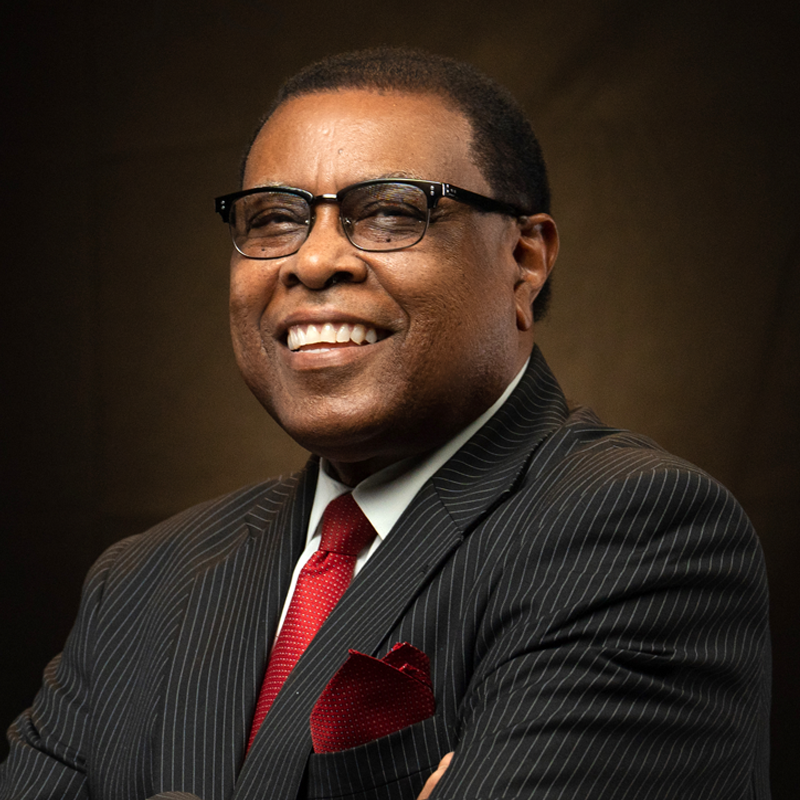MEET THE TEAM

Desmond F. James
Director
PARL is the Public Affairs and Religious Liberty Department for the Seventh-day Adventist worldwide church. It was recognized as a department of the world church in 1902.
PARL is like the foreign affairs ministry in a government or the external affairs department in many corporations. We work mainly with governments, internal organizations, and religious authorities. Our field of activity deals with human rights legislation, geo-politics, protocol, and government. The PARL Department could be, without too much exaggeration, called the “Foreign Affairs Ministry” of the church. We are the ones who build bridges, try to solve conflicts, improve legislation, defend those who are persecuted for their faith, and promote and protect religious freedom. In the last few years, we have developed our presence at the United Nations, the United States government, the Christian World Communions, and non-governmental organizations, and we have given strong support to the International Religious Liberty Association.
In these different areas, we build a global network of friends and experts belonging to different religions and beliefs, but sharing with us the most fundamental values of human rights and human dignity. Our department is the official voice and presence of our church in the global market. Being ambassadors of the church gives us the enormous privilege and responsibility to also be Ambassadors of the Kingdom of God in this world.
The Religious Liberty department promotes and maintains religious liberty, with particular emphasis upon liberty of conscience. Religious liberty includes the human right to have or adopt the religion of your choice and includes the right to observe days of rest and worship in accordance with the precepts of one’s religion.
The department actively supports the rights of new and existing Seventh-day Adventists believers to express their religion without hindrance as governed by the laws of our country. The department also monitors and interprets current events that may reflect prophetic scenario.
Public Affairs and Religious Liberty In The SDA Church
Liberty Magazine
SDA Church State Council
What is PARL
Religious Liberty Sabbath
Religious Liberty Strategic Plan
The Seventh-day Adventist church strongly believes in religious freedom for all people. A person’s conscience, not government, should dictate his or her choice to worship—or not.
We have advocated for these goals for more than 100 years, through our department of Public Affairs and Religious Liberty (PARL), to governments and religious and international organizations.
This advocacy takes many forms—fighting against laws that would inhibit an individual’s religious freedoms, working to obtain the release of individuals imprisoned for religious reasons and supporting the rights of individuals fired from their jobs for following their conscience, to name a few.
As the official voice of the Adventist Church on matters of religious freedom and human rights, PARL maintains offices in Washington, D.C. to allow for convenient access to the U.S. Congress; New York City, to liaise with the United Nations; and at the church’s world headquarters in Silver Spring, MD. PARL also sponsors the International Religious Liberty Association (IRLA) on behalf of the Adventist Church. IRLA is a non-sectarian organization supporting religious freedom around the world.
The first organization of its kind, IRLA brings together representatives of many faiths—including Catholics, Baptists, Muslims, Jews, Mormons, Buddhists and others—to support religious liberty. PARL and IRLA promote this vital cooperation through conferences, religious liberty festivals and other events, collectively raising awareness and educating government officials around the world.
This priority is vital to the Seventh-day Adventist Church. While we are a rapidly growing denomination around the world, the church often finds itself in the religious minority, and consequently, understands the importance of ensuring that all voices be allowed to speak.
The Adventist Church believes that fighting religious oppression and defending an individual’s right to worship according to his or her conscience—regardless of that person’s religious affiliation—is in everyone’s best interest.
Free exercise of religion is like a fragile flower; it must receive the most vigorous protection possible and the most gentle care to be found. Within it, freedom of conscience thrives or is throttled. Revelation 13 points to a political power that will arise in the last days causing people to “worship” another religion-political power. Religion and politics are symbolized in Revelation 17 by an apostate church being sustained by the government. The persecuting power of this union of church and state is illustrated by the woman who becomes drunk with the blood of the saints.
What, then, are we to do about threats to religious freedom? Ellen White says, “It is our duty to do all in our power to avert the threatened danger. We should endeavor to disarm prejudice by placing ourselves in a proper light before the people. We should bring before them the real question at issue, thus interposing the most effectual protest against measures to restrict liberty of conscience” (Testimonies for the Church, Vol. 5, page 452).
Duties of the Religious Liberty Leader
The ministry to which a person is called when he or she becomes a religious liberty leader can best be described in the following ways:
Promote Liberty magazine. Help your pastor conduct the religious liberty campaign in your church. Set an example by your wholehearted support. Then encourage church members to subscribe to Liberty for themselves and give generously to send the magazine to community, state or province, and national officials and thought leaders.
Communication. Provide religious liberty news through announcements. Leader can plan on having 5 minutes during personal ministries time once per quarter to give oral reports of current developments. He or she also becomes the eyes and ears for the conference and union public affairs and religious liberty directors by bringing significant items to their attention.
Get acquainted with public officials. Know the state or provincial government leaders and national legislators from your area. Write to them when religious liberty issues arise. Let them know what your religious liberty concerns are in a respectful, dignified manner as befits the cause of Christ. When religious liberty issues arise, you may be asked to encourage church members to write letters to state, provincial, or national leaders, but consult with your union Public Affairs and Religious Liberty (PARL) director before writing or contacting public officials in the name of the church.
Give recognition to civic leaders. When a civic official in your community takes a strong stand on upholding religious liberty, contact your union conference PARL director for assistance in recognizing the official by presenting an appropriate plaque or award at the church or in the official’s office.
Community relations. Become involved in the local community. Keep a current name and address file of city and county officials including council members. Get acquainted with your city and county public servants and be sure they receive Liberty magazine. Attend their meetings to become better acquainted with the problems in your community. Keep your pastor and conference PARL director informed about major developments in your community that could affect religious freedom. Help to organize local contacts when asked to do so by your pastor or conference PARL director.
Help church members. Watch for religious liberty problems among church members. Some members, especially new ones, are not aware that assistance is available to them as they face Sabbath employment problems or problems with labor unions.
Time Commitment:
The amount of time required for religious liberty issues will vary. The leader will need to plan on four to five hours per month to carry out his or her duties.
The responsibility of the Religious Liberty Department is to defend religious freedom. This entails being informed so that you can keep your church and community informed of issues, laws and trends that threaten religious freedom.
According to Ellen G. White, “Let none sit in calm expectation of the evil, comforting themselves with the belief that this work must go on because prophecy has foretold it, and that the Lord will shelter His people. We are not doing the will of God if we sit in quietude, doing nothing to preserve liberty of conscience.” Testimonies for the Church, vol. 5, p. 713, 714
“The responsibility for this great gift [banner of truth and religious liberty] rests with those whom God has blessed with a knowledge of His word.” Acts of the Apostles, p. 69
